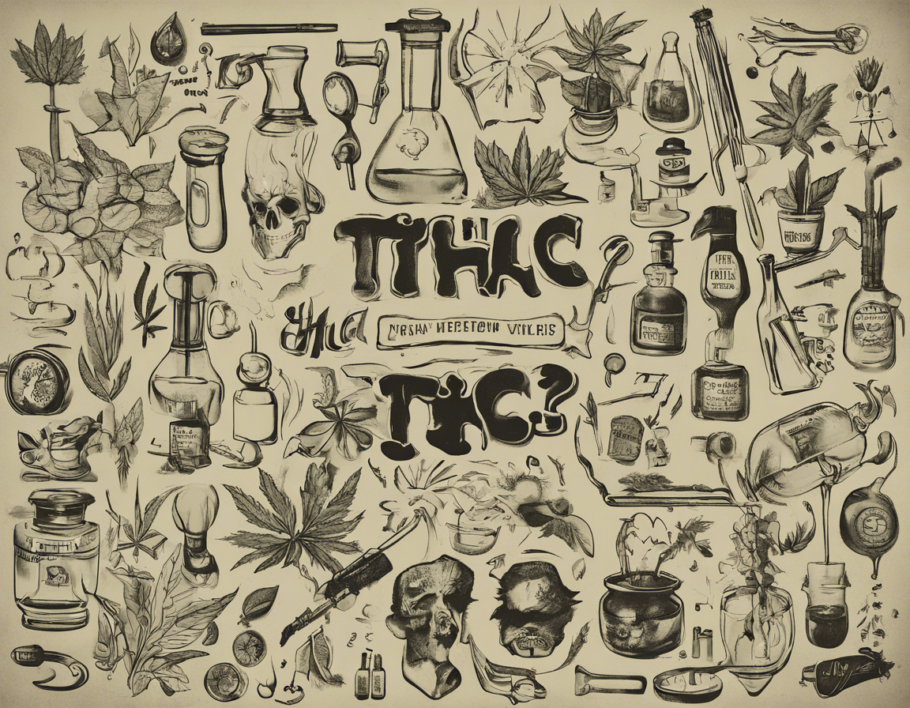As more states and countries around the world legalize marijuana for medical and recreational use, THC has become a hot topic of discussion. Tetrahydrocannabinol (THC) is one of the many compounds found in cannabis plants, and it is responsible for the psychoactive effects commonly associated with marijuana use. In this comprehensive guide, we will delve into the science behind THC, its effects on the body and mind, its potential benefits and risks, as well as its legal status.
What is THC?
THC, or tetrahydrocannabinol, is a cannabinoid compound found in cannabis plants. It is one of over 100 cannabinoids identified in cannabis, and it is the primary psychoactive component responsible for producing the “high” or euphoric feeling commonly associated with marijuana use.
How Does THC Work?
When THC is consumed, it interacts with the body’s endocannabinoid system (ECS). The ECS is a complex network of receptors, enzymes, and endocannabinoids that help regulate a variety of functions in the body, including mood, memory, pain sensation, and appetite. THC binds to CB1 receptors in the brain and nervous system, impacting neurotransmitter release and leading to the various effects associated with marijuana consumption.
Effects of THC
Short-Term Effects
- Euphoria
- Relaxation
- Altered perception of time
- Increased appetite
- Impaired coordination and motor skills
- Memory impairment
Long-Term Effects
- Dependence and Addiction: Regular, heavy use of THC can lead to dependence and addiction in some individuals.
- Mental Health: There is evidence to suggest that long-term, heavy THC use may be linked to an increased risk of mental health disorders, such as schizophrenia.
- Respiratory Issues: Smoking marijuana can have similar negative effects on the respiratory system as smoking tobacco.
Potential Benefits of THC
- Pain Relief: THC has been shown to have analgesic properties, making it effective in managing both acute and chronic pain.
- Appetite Stimulation: THC can help increase appetite, making it beneficial for individuals undergoing chemotherapy or suffering from eating disorders.
- Anti-Nausea Effects: THC has antiemetic properties, which can help alleviate nausea and vomiting in patients undergoing cancer treatment.
- Neuroprotection: Some studies suggest that THC may have neuroprotective properties, potentially offering benefits for neurodegenerative disorders like Alzheimer’s disease.
Risks and Side Effects
- Impaired Cognitive Function: THC can impair cognitive function, memory, and concentration, particularly in adolescents and individuals with underlying mental health conditions.
- Psychological Effects: In some individuals, THC can trigger anxiety, paranoia, or psychosis, especially at high doses.
- Addiction: While not as addictive as substances like alcohol or opioids, THC can lead to dependence in some users, particularly with heavy, long-term use.
Legal Status of THC
The legal status of THC varies significantly across different jurisdictions. While some countries have legalized medical marijuana or recreational cannabis use, others maintain strict regulations or outright prohibition. It is essential to familiarize yourself with the laws and regulations in your location regarding THC and cannabis use.
Frequently Asked Questions (FAQs)
1. Is THC the same as CBD?
No, THC (tetrahydrocannabinol) and CBD (cannabidiol) are two of the most well-known cannabinoids found in cannabis, but they have different effects on the body. THC is psychoactive and produces a “high,” while CBD is non-psychoactive and is commonly used for its potential therapeutic benefits.
2. Can you overdose on THC?
While it is extremely rare, it is technically possible to overdose on THC. However, the amount required to reach a lethal dose is much higher than the typical amounts consumed by individuals for recreational or medical purposes.
3. How long does THC stay in your system?
The detection window for THC can vary depending on various factors such as frequency of use, method of consumption, and individual metabolism. In general, THC can be detected in urine for up to 30 days, in blood for up to 7 days, and in hair follicles for up to 90 days.
4. Is THC addictive?
THC can be psychologically addictive for some individuals, particularly those who use it heavily and over an extended period. Physical dependence is possible, but withdrawal symptoms are typically mild compared to substances like opioids or alcohol.
5. Can THC be used medically?
Yes, THC has several potential medical applications and is often used to manage conditions such as chronic pain, nausea, and muscle spasticity in patients with multiple sclerosis. It is essential to consult with a healthcare provider before using THC for medical purposes.
In conclusion, understanding THC is crucial for individuals considering its use for recreational or medical purposes. While THC can offer potential benefits such as pain relief and appetite stimulation, it also carries risks such as cognitive impairment and addiction. It is essential to approach THC use with caution, respect the legal regulations in your area, and consult with a healthcare provider if considering it for medical purposes.

